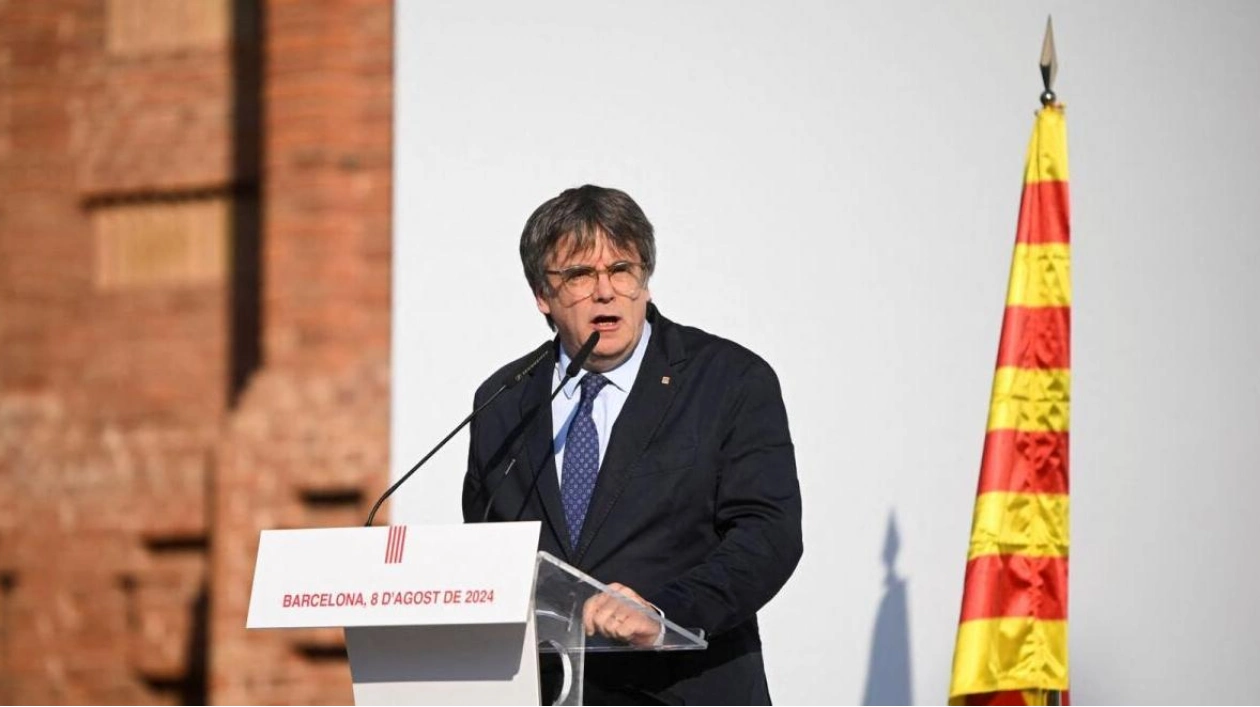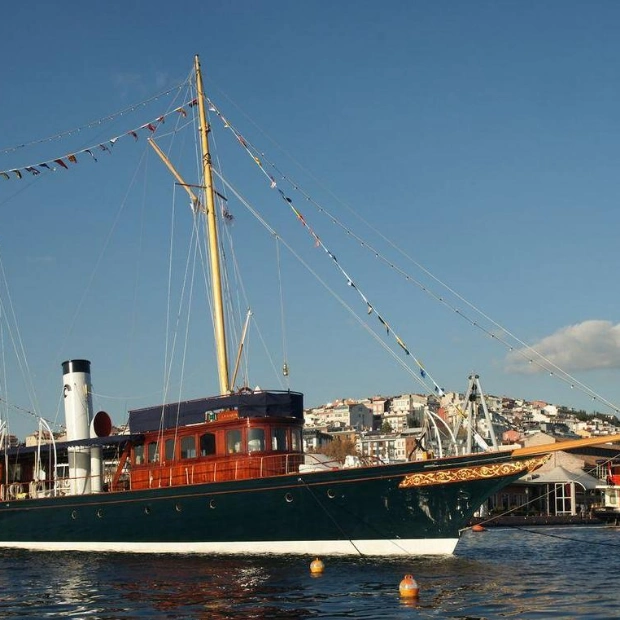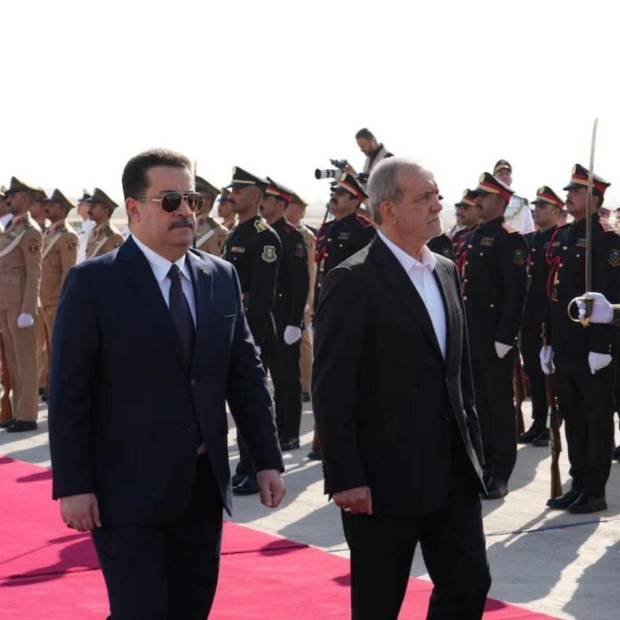Carles Puigdemont, the ex-leader of Catalonia who escaped Spain due to his involvement in the unsuccessful 2017 push for independence in the affluent region, reappeared in Spain on Thursday following seven years in hiding, despite an outstanding arrest warrant. Upon his arrival, Puigdemont promptly vanished once more. As he ascended a stage in Barcelona to speak to a throng of people near the Catalan regional parliament, he exclaimed, "Long live a free Catalonia!" The parliament was scheduled to choose a new leader later that day. "I'm here to remind you that we are still here," Puigdemont declared, as onlookers waved the red, yellow, and blue flags of Catalan independence. After his short speech, Puigdemont seemed to be heading toward the nearby Catalan parliament, but the assembly proceeded with an investiture vote to select a new regional leader without his presence. His whereabouts were unclear. According to Spanish media, police had established roadblocks in Barcelona and were conducting vehicle searches in an attempt to locate Puigdemont. When contacted by AFP, the police declined to comment on whether such an operation was in progress.
Nuria Pujol, a woman in her fifties who traveled from the Alt Penedes region to Barcelona to see Puigdemont, described him as "a very noble person." She added, "He's the only one who believes in independence and hasn't stopped believing." A small contingent of protesters nearby waved Spanish flags and held signs reading "Catalonia is Spain," in a demonstration orchestrated by the far-right party Vox. Puigdemont's dramatic return occurred just days after Spanish Prime Minister Pedro Sanchez's Socialists reached an agreement with the moderate Catalan separatist party ERC, which rivals Puigdemont's more hardline JxCAT, to appoint Salvador Illa, the Socialist candidate, as the next head of the Catalan regional government. The Socialists secured the most seats in a regional election in May but fell short of a majority, making ERC's support essential. If a new Catalan regional government is not established by August 26, new elections will be held in October.
Puigdemont presided over the Catalan regional government in 2017 when it proceeded with an independence referendum in defiance of a court order, followed by a brief declaration of independence. He fled Spain shortly thereafter to evade prosecution and has since resided in Belgium and more recently France. Although Spain's parliament passed an amnesty law in May for those involved in the failed secession attempt, the Supreme Court ruled on July 1 that the measure would not fully apply to Puigdemont. "A country that has an amnesty law and does not apply it has a problem with democracy," he stated in his speech. Sanchez agreed to the amnesty law in return for JxCAT's crucial backing in Spain's parliament for his precarious minority government, igniting massive street protests organized by the right wing. He now faces opposition from within his own Socialist party and the right over a proposal to grant Catalonia full control over the taxes collected in the region. This measure was promised to the ERC in exchange for their support for Illa in Thursday's Catalan investiture vote. The proposal, which has been a longstanding demand of Catalan independence parties, is criticized for potentially depriving the central state of a significant revenue source. It must still be ratified by Spain's national parliament. A comparable system is already in place in Spain's northern Basque Country, which also has an active independence movement. If Illa succeeds in Thursday's investiture vote, he will be the first head of Catalonia's regional government since 2010 who is not from the separatist camp. The former health minister has defended the tax agreement made with the ERC, stating it was "favorable for all Catalans." "They are agreements designed to enhance our finances without disadvantaging anyone and while adhering to the principles of fiscal solidarity," he explained after securing the ERC's support. However, former Socialist deputy prime minister Alfonso Guerra has argued that the tax agreement paves "a path towards a federal system and the independence of Catalonia."






